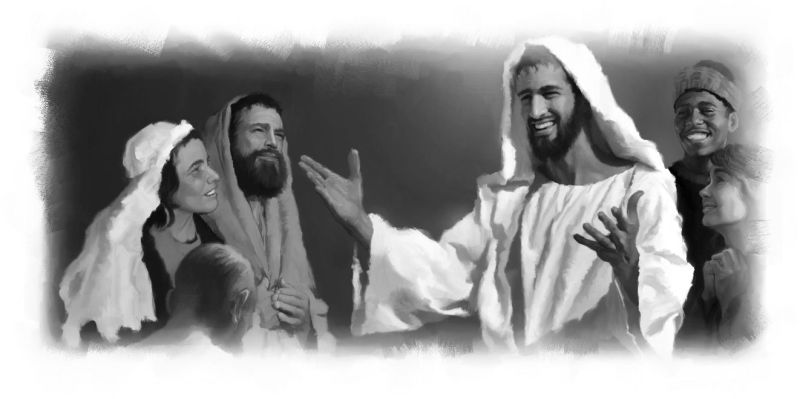Father kept his word about organizing Sabbath worship services at home in Armenia. Having prohibited Mother and their daughter, Anush, from going to the Seventh-day Adventist Church, he called them to the living room on Sabbath morning. For Sabbath School, they studied the Adult Sabbath School Bible Study Guide and prayed together. Then Anush preached a short sermon.
The worship services continued for months. Father, who had never visited an Adventist church, was so serious about the worship services that, if guests were visiting, he invited them to the living room, opened his Bible, and said, “Welcome to our worship service. Today is the Sabbath, and you can join us.” This was not the Armenian way. In Armenia, hosts leave everything to entertain guests. Guests were shocked and wondered what was going on.
As the family worshiped together, Father realized that he didn’t know the Bible. In Matthew 4, the family read how Jesus met every temptation by Satan with the words, “It is written.” Father was impressed. He saw that he wouldn’t know if Satan was tempting him if he didn’t know the Bible. From that day, he began to read the Bible daily. As he read, he also sought answers to why he and his family were worshiping on the seventh day, Saturday, while many Christians in Armenia worship on the first day, Sunday.
Father had vowed that Anush and Mother would never return to the Adventist Church, and he wanted to keep his word. Anush very much missed church services, but she hid her feelings because she understood that her duty was to love her father and wait for God to bring him to repentance.
But when she learned that the Adventist house church in their town was preparing for a Communion Sabbath, she asked Father for permission to go. Armenia is a largely patriarchal society where many fathers are the decision-makers of the household. “Would you allow us to take part in the communion service?” she asked.
“Communion?” Father said. “You know, I can lead that ceremony, too.”
Nobody went to Communion that Sabbath.
Then Father and Mother became grandparents. Anush had an older sister who had gotten married and left home, and she gave birth to a baby. Mother learned that the baby and the rest of the family had been lifted up in prayer at church. “They prayed for us in church, and I want to take something sweet to them as a thank-you gift,” she told Father.
Father’s heart was touched by the kindness of the church members, and he allowed Anush and Mother to return to church.
Part of last quarter’s Thirteenth Sabbath Offering went to open a center of influence for families like Anush’s in Yerevan, Armenia. Thank you for helping spread the gospel with your offerings. Next week: Father starts going to church.


